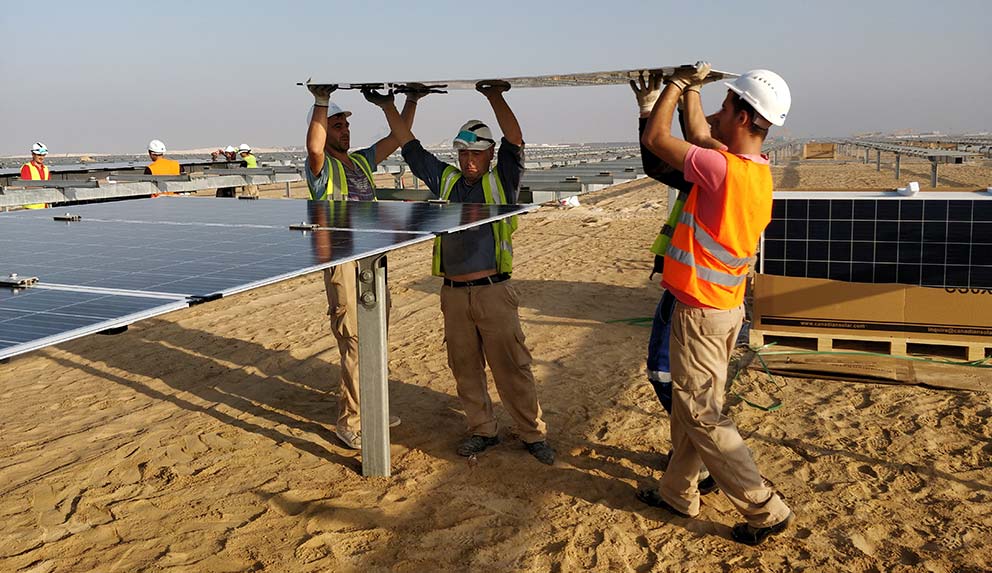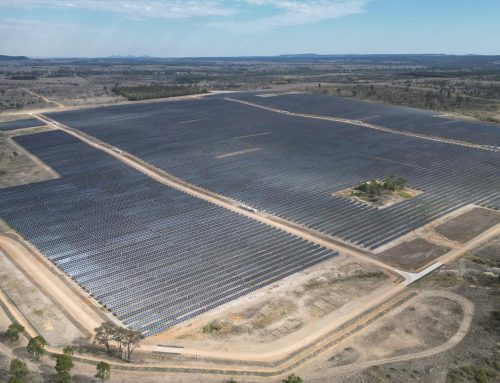Profitability, less worries, guarantee of excellent results. This could be the quick answer to the question posed in the title of this article, what are the advantages of an EPC contract in a photovoltaic project. However, these statements require an in-depth analysis to demonstrate why it is more effective to invest in renewables through an increasingly widespread contract modality in which the secret is to have the support of an experienced company.
EPC projects are those in which the client entrusts a contractor with the complete execution of the work, from engineering design to commissioning. This partnership between the two parts is often extended to the next phase, the operation and maintenance tasks during the warranty period (2-3 years) and, optionally, the lifetime of the installation.
EPC stands for Engineering, Procurement and Construction, and refers to projects that are also known as ‘turnkey’. The contractor assumes responsibility for engineering services, procurement of materials, hiring of teams and materials, and execution of the work, among other tasks, to deliver the project ready to be operated by the client by a given deadline and with a number of guarantees.
Advantages of the EPC projects
The EPC modality for undertaking any type of renewable energy installation has numerous benefits for investors and is especially advantageous for those with little experience or knowledge of the sector. Among the advantages of the EPC modality, we could highlight the following:
- The customers need to invest less time and resources in the project than if they were to do it themselves. The fact of having a single interlocutor in the different phases makes things easier for them.
- The requirement for a single team reduces costs and makes it possible to establish a fixed amount in advance.
- It is easier to ensure completion deadlines, since everything depends on a single company, which usually assumes compensation in case of non-compliance.
- The EPC modality allows greater control of risks as there are fewer parts involved.
- The possibility of contracting the operation and maintenance (O&M) tasks with the same company has the advantage that, since it knows its own installation to perfection, it can easily prevent and solve possible unforeseen events.
- EPC companies usually have a high level of specialization in all phases of the process and a network of strategic allies that facilitate their work and help them mitigate risks.
- It helps the client obtain better financing conditions by having an experienced partner who will respond to any default attributable to the contractor.
What is included in an EPC contract
EPC contracts tend to coincide in many aspects, although they vary according to the needs of each project and are adapted to what both parts agree on. Broadly speaking, these are the tasks that usually regulate this type of agreement:
- Basic and detailed engineering.
- The processing of some of the necessary permits to undertake the work, as well as for the commissioning of the installation.
- The procurement or supply, if the EPC company is also a manufacturer, of the materials and machinery necessary to undertake the project.
- The transport of these materials to the plant.
- The execution of civil works and mechanical assemblies and electrical and communication installations as required.
- The commissioning of the installation.
- The O&M tasks of the plant at least during the warranty period, which usually ranges from 1 to 3 years, to ensure that any defects in the installation can be corrected by the contractor without difficulty for the client. Sometimes, if both parties are satisfied, this agreement is extended in time.
What to expect from a good EPC contractor
Considering all the responsibilities required of a company taking on EPC projects, choosing the ideal contractor can be a challenge for an investor that is unfamiliar with the PV industry or the energy sector in general.
However, there are some minimum requirements that can help to find the ideal partner to make the project a success, which can be summarized as follows:
- Experience in the sector. It must be a company that knows the market fluctuations, the possible strategic allies, and the latest technological advances.
- Qualified professionals. It is not only necessary that it has the best team of workers, but also that it has the tools and resources to train local workers. In addition, it is important that, due to their experience, they are familiar with the labor regulations of the area in which they operate.
- Seriousness and reliability. The work of a good EPC company is backed by success stories and the favorable opinion of previous clients.
- Integration of all services as far as possible. It is not always easy, but if there is the possibility of contracting a company with its own production capacity, this will facilitate supply and compliance with deadlines, even in times of volatility in the sector.
Few companies in the world can be proud of having the ability to integrate everything needed to develop the different phases of a project. In the case of GRS, being a part of Gransolar group allows it to count on the support of ISE in engineering, as well as the solar tracker manufacturer PV Hardware and the battery integrator E22. Thanks to this outstanding factor, it can offer its customers more advantageous prices, guarantees in logistics processes, optimized maintenance tasks, etc.




